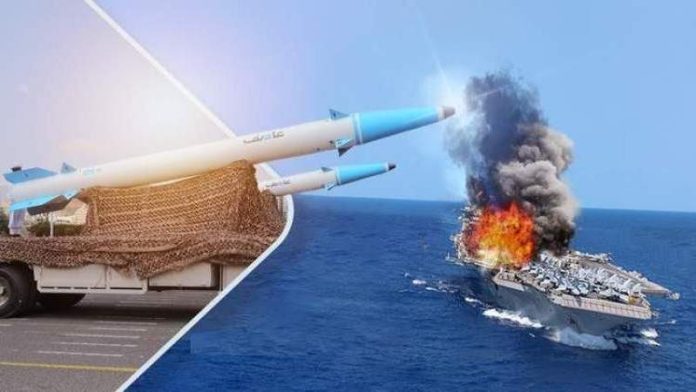An American magazine has revealed that US aircraft carriers operating within range of Yemeni missiles are facing significant danger.
In a report published Thursday, the National Interest noted that the USS Harry S. Truman aircraft carrier narrowly escaped being hit twice, forcing it to execute sharp evasive maneuvers to avoid Yemeni missiles.
The report stated that the United States appears to have fought a war with Yemen — and lost, referring to the challenges facing the US Navy in the Red Sea.
National Interest also highlighted that President Trump’s decisions had placed “Israelis” in a difficult position, and despite the massive arms and trade deals made between Trump’s administration and Riyadh, America’s military influence in the region is rapidly diminishing.
According to National Interest, US forces are facing growing challenges from Yemeni military capabilities, raising questions about the effectiveness of the American military presence in the region and its impact on allies such as the Zionist entity.
The Gaza war has reignited wider regional tensions, but this time, Yemen has positioned itself as a key actor reshaping the conflict’s dynamics. Through sustained missile and drone operations, Yemen has effectively imposed a naval and aerial siege on Israel, disrupting vital maritime routes in the Red Sea and paralyzing air traffic into Israeli territories.
Despite heavy American support for Israel, Yemen’s actions have exposed serious vulnerabilities in the US military posture. Repeated missile strikes have forced US warships, including aircraft carriers, into evasive maneuvers, raising doubts about Washington’s ability to secure key strategic waterways.
The diplomatic fallout is evident as well — with foreign airlines halting flights to Israel and international media questioning the effectiveness of the US-led coalition. Yemen’s asymmetric warfare tactics have not only shifted the balance of power but have also challenged the longstanding perception of Israeli and American military superiority in the region.


















